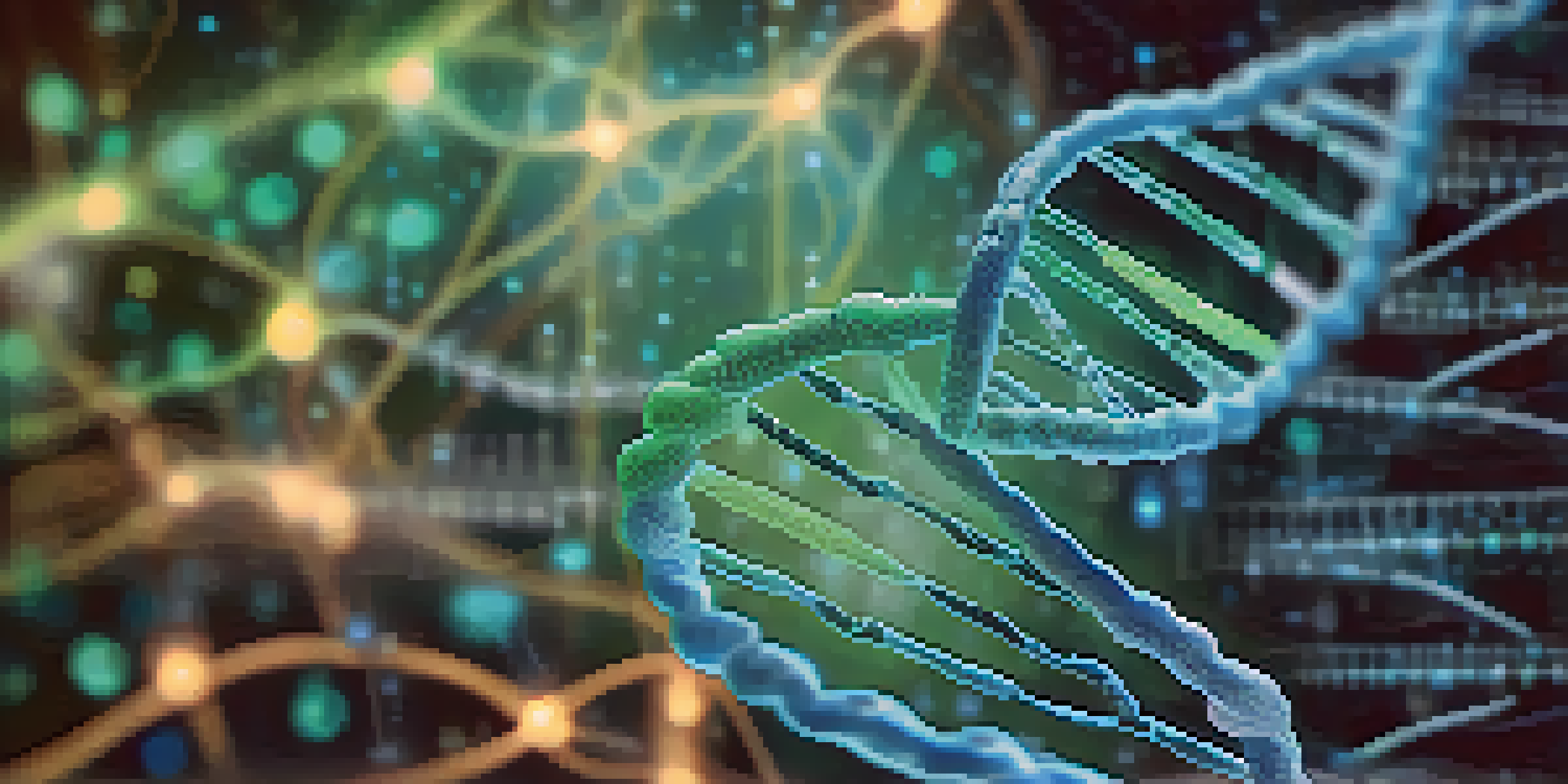The Role of Genetics in Chronic Pain Development

Introduction to Chronic Pain and Genetics
Chronic pain affects millions of people worldwide, often with no clear cause. Understanding the role of genetics offers insights into why some individuals develop chronic pain while others do not. By studying genetic factors, researchers aim to uncover the biological mechanisms that contribute to pain perception and response.
How Genetics Influences Pain Perception
Genetics can play a critical role in how we experience pain. Variations in specific genes can affect pain receptor sensitivity and the way our body processes pain signals. For instance, some individuals may have a genetic predisposition that makes them more sensitive to pain, leading to a heightened perception of discomfort.
Genetics Shapes Pain Sensitivity
Variations in specific genes can influence how individuals perceive and respond to pain.
The Role of Inflammation in Genetic Pain Response
Chronic pain is often linked to inflammatory processes in the body. Genetic factors can influence the inflammatory response, making some individuals more susceptible to conditions like arthritis or fibromyalgia. When inflammation is persistent, it can lead to ongoing pain, highlighting the connection between genetics and chronic pain development.
Genetic Mutations and Chronic Pain Syndromes
Some chronic pain syndromes are directly associated with genetic mutations. For example, certain inherited disorders can lead to extreme sensitivity to pain or conditions that result in chronic discomfort. Understanding these genetic mutations helps medical professionals tailor treatments to individual patients based on their genetic background.
Inflammation Links to Chronic Pain
Genetic factors can affect the body's inflammatory response, contributing to conditions like arthritis and fibromyalgia.
Environmental Factors and Genetic Interplay
While genetics plays a significant role, environmental factors also contribute to chronic pain development. Stress, lifestyle choices, and exposure to toxins can interact with genetic predispositions. This interplay between genes and environment creates a complex landscape that shapes how chronic pain manifests in different individuals.
Personalized Medicine and Genetic Testing
Advancements in genetic testing are paving the way for personalized medicine in pain management. By identifying specific genetic markers, healthcare providers can develop customized treatment plans that target an individual's unique pain profile. This approach not only improves patient outcomes but also enhances overall quality of life.
Personalized Pain Management Advances
Genetic testing allows healthcare providers to create tailored treatment plans that improve patient outcomes in chronic pain management.
Future Directions in Pain Genetics Research
The field of pain genetics is rapidly evolving, with ongoing research aimed at uncovering the complexities of chronic pain. Future studies could lead to new therapies that specifically address genetic factors contributing to pain. As our understanding deepens, we may find more effective ways to prevent and treat chronic pain based on genetic insights.
Conclusion: The Importance of Genetics in Chronic Pain
Recognizing the role of genetics in chronic pain development is crucial for both patients and healthcare providers. By acknowledging this factor, we can work towards more effective, personalized treatment strategies. As research continues, we can hope for a future where genetics is a key component in alleviating chronic pain for many.